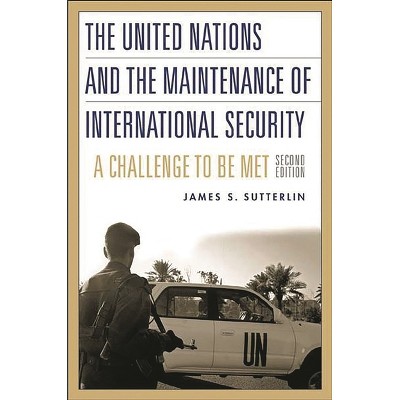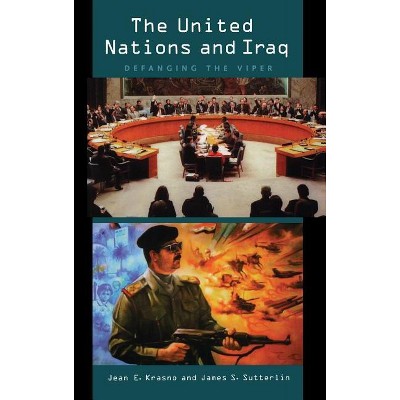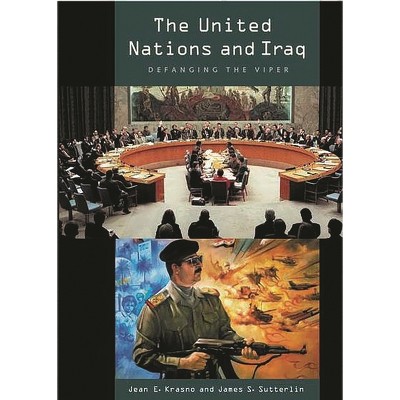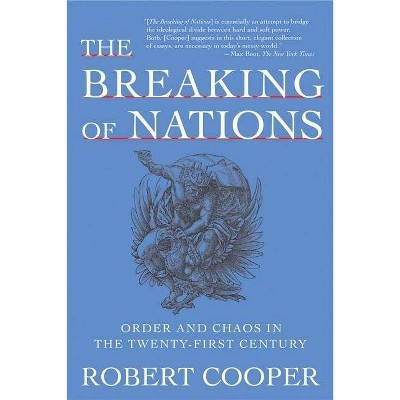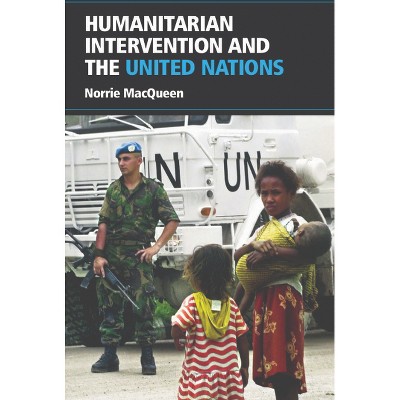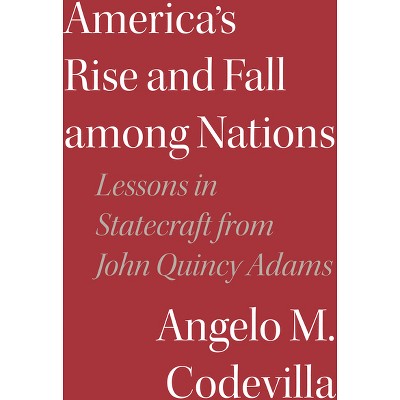Sponsored

The United Nations and the Maintenance of International Security - 2nd Edition by James S Sutterlin (Hardcover)
In Stock
Sponsored
About this item
Highlights
- International security must be understood in much broader terms in the aftermath of the Cold War.
- About the Author: JAMES S. SUTTERLIN is Lecturer and Fellow in United Nations Studies at Yale University and Adjunct Professor at Long Island University.
- 192 Pages
- Political Science, International Relations
Description
About the Book
International security must be understood in much broader terms in the aftermath of the Cold War. This extensively revised edition retains the valuable descriptions and analyses of the United Nations' achievements and failures, while placing them in the context of the ever-broadening definition of international security and of changing attitudes toward national sovereignty and humanitarian intervention. In order to deal with the internal struggles that are now the prevalent form of conflict, it is necessary to allay the root causes of tensions within societies. Means of enforcement must be applied to prevent gross violations of human rights, including genocide.
Sutterlin describes the background of innovations that recent crises have imposed on the UN. He analyzes how recent reforms have affected the UN's capacity to deal with the security problems of the new century. Peacekeeping, peace-enforcement, peace-building, and the application of sanctions all bring new challenges. In one chapter, Sutterlin focuses on the UN's experience in enforcing disarmament in Iraq. A new chapter details the impact of terrorism and weapons of mass destruction on UN policies and actions. This systematic presentation, using scholarly analysis and a practitioner's inside knowledge, provides a readable and challenging text for courses on the United Nations.
Book Synopsis
International security must be understood in much broader terms in the aftermath of the Cold War. This extensively revised edition retains the valuable descriptions and analyses of the United Nations' achievements and failures, while placing them in the context of the ever-broadening definition of international security and of changing attitudes toward national sovereignty and humanitarian intervention. In order to deal with the internal struggles that are now the prevalent form of conflict, it is necessary to allay the root causes of tensions within societies. Means of enforcement must be applied to prevent gross violations of human rights, including genocide.
Sutterlin describes the background of innovations that recent crises have imposed on the UN. He analyzes how recent reforms have affected the UN's capacity to deal with the security problems of the new century. Peacekeeping, peace-enforcement, peace-building, and the application of sanctions all bring new challenges. In one chapter, Sutterlin focuses on the UN's experience in enforcing disarmament in Iraq. A new chapter details the impact of terrorism and weapons of mass destruction on UN policies and actions. This systematic presentation, using scholarly analysis and a practitioner's inside knowledge, provides a readable and challenging text for courses on the United Nations.About the Author
JAMES S. SUTTERLIN is Lecturer and Fellow in United Nations Studies at Yale University and Adjunct Professor at Long Island University. Following service in the U.S. Army during World War II, Sutterlin entered the Foreign Service with posts in Germany, Israel, Japan, and Washington. In 1974 Sutterlin joined the United Nations Secretariat, serving as a senior aide to the Secretary-General.Shipping details
Return details
Trending Non-Fiction






